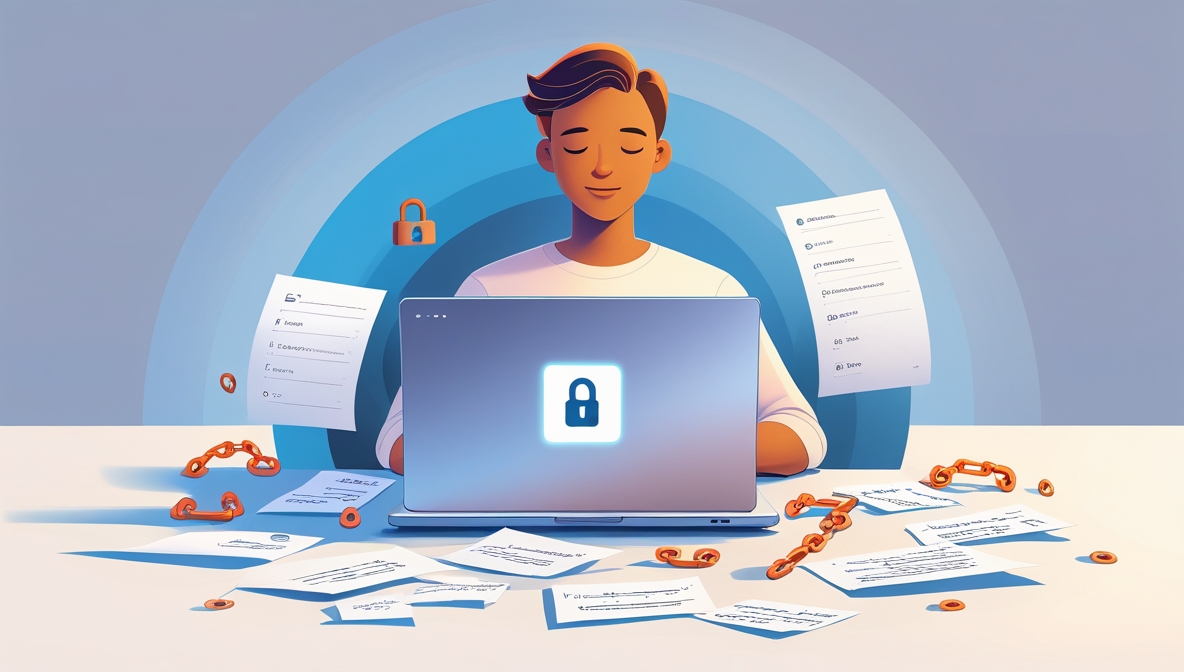Why Password Managers Are Essential in Today’s Digital World
In the era of digital transformation, securing personal and corporate information has never been more critical. With cyber threats on the rise, the use of password managers is no longer optional — it’s essential. As businesses and individuals juggle countless login credentials, relying on memory or using weak, repeated passwords exposes them to severe vulnerabilities. Password managers offer a secure, efficient, and intelligent solution to manage credentials, protect sensitive data, and enhance overall cybersecurity.
The Rising Threat of Cybercrime and Poor Password Hygiene
According to multiple studies, over 80% of data breaches are due to compromised or weak passwords. With the average person managing over 100 different accounts, it's no surprise that many reuse passwords or create easy-to-guess ones. This poor password hygiene creates a fertile ground for cybercriminals to exploit.
Phishing attacks, brute-force entry, and credential stuffing have become common tactics. In response, password managers provide a vital layer of defense, generating strong, unique passwords for every account and storing them securely using end-to-end encryption.
What Is a Password Manager and How Does It Work?
A password manager is a software tool that securely stores and manages your passwords and other login credentials in an encrypted database. Most modern password managers also offer:
-
Password generation tools to create complex and unique passwords.
-
Browser extensions for auto-filling login fields.
-
Two-factor authentication (2FA) support for enhanced security.
-
Cross-platform synchronization, so your data is accessible on all your devices.
When logging into a website or service, the password manager automatically fills in the credentials, saving time and drastically reducing the risk of keyloggers or phishing attacks.
Advantages of Using a Password Manager
1. Enhanced Security with Strong, Unique Passwords
Creating and remembering complex passwords is nearly impossible without assistance. Password managers generate random strings of characters, including numbers, symbols, uppercase and lowercase letters — making it extremely difficult for hackers to crack.
Each account gets a unique password, eliminating the risks associated with reusing credentials across platforms.
2. Convenience and Time-Saving
One of the standout features is the auto-fill functionality, which can log you into websites in seconds. Whether it’s your banking portal, email, or social media, you don’t need to memorize or retrieve your passwords manually.
With a secure master password or biometric login, you gain access to all your credentials instantly, boosting productivity.
3. Protection Against Phishing Attacks
Phishing websites often mimic legitimate ones to steal credentials. A password manager helps detect such scams by refusing to auto-fill login forms on unauthorized or fake websites. This acts as a built-in phishing shield that alerts users to potentially dangerous domains.
4. Cross-Device Synchronization
Whether you’re on a smartphone, tablet, or desktop, password managers sync your encrypted vault across all platforms. This ensures that you’re never without access, regardless of the device you’re using.
Top-tier password managers support cloud-based syncing with zero-knowledge encryption, meaning not even the service provider can view your passwords.
5. Secure Password Sharing
Sharing passwords through emails or messaging apps is highly insecure. Password managers offer secure sharing features that allow you to give access to specific accounts without revealing the actual password. This is particularly useful for teams, families, and remote workers.
Best Features to Look For in a Password Manager
When selecting a password manager, certain features are indispensable:
-
Military-grade encryption (AES-256 or higher)
-
Two-factor or multi-factor authentication (MFA)
-
Password health audits and breach alerts
-
Dark web monitoring
-
Biometric login support
-
Offline access capabilities
-
Family or team plans with granular permissions
These features help ensure that your passwords are not only safe but also proactively monitored against potential threats.
Free vs Paid Password Managers: Which Should You Choose?
While free versions offer basic functionality, premium password managers provide more robust features like dark web monitoring, encrypted file storage, and priority customer support. For businesses, enterprise-level password managers come with admin dashboards, user provisioning, and compliance tools essential for meeting data protection regulations like GDPR or HIPAA.
Choosing a paid solution is often a worthwhile investment, considering the cost of a potential data breach.
Popular Password Managers Worth Considering
Several password managers stand out in the market:
-
LastPass – Feature-rich with strong free and family plans.
-
1Password – Known for its excellent UI and Watchtower security feature.
-
Bitwarden – Open-source, highly secure, and great value.
-
Dashlane – Includes VPN and dark web monitoring in premium plans.
-
Keeper – Offers biometric login and encrypted file storage.
Each has its own strengths, but the core functions — security, convenience, and reliability — are consistent across all top-tier platforms.
Why Businesses Must Adopt Password Managers
For organizations, weak passwords are one of the biggest security vulnerabilities. Cybercriminals often exploit them to gain unauthorized access to company systems, leading to data loss, financial damage, and reputational harm.
By deploying enterprise-grade password managers, companies can:
-
Enforce strong password policies
-
Gain visibility into employee password hygiene
-
Facilitate secure password sharing
-
Streamline onboarding and offboarding processes
-
Achieve regulatory compliance
Password managers also reduce the workload on IT teams by minimizing password reset requests and automating credential management.
Addressing Common Misconceptions
Many people believe password managers are risky because storing all passwords in one place seems like creating a “single point of failure.” However, reputable password managers use advanced encryption and zero-knowledge architecture, meaning even the provider can’t access your data.
Others worry about forgetting their master password. Solutions like biometric authentication, emergency access, and recovery keys help mitigate this risk effectively.
Future of Password Security: Moving Beyond Passwords
The cybersecurity landscape is evolving. Passkeys, biometrics, and multifactor authentication are becoming more mainstream. However, passwords remain a dominant authentication method and will be around for the foreseeable future.
Password managers will continue to play a crucial role, acting as a bridge to more secure and user-friendly authentication technologies.
Conclusion: A Simple Step Toward Stronger Digital Security
Using a password manager is one of the easiest yet most effective steps you can take to protect your digital identity. Whether you’re an individual managing dozens of online accounts or a business handling sensitive client data, the benefits of password managers are undeniable. They offer security, convenience, and peace of mind, helping you navigate the complex digital world with confidence.




